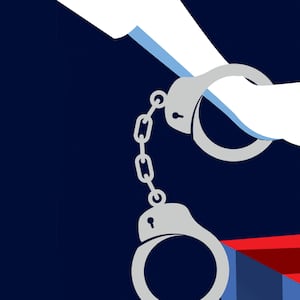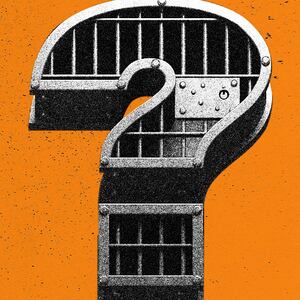Florida overwhelmingly voted in favor of Amendment 4 on Tuesday giving previously disenfranchised ex-felons the opportunity to vote. But what happens next, in terms of registering them and ensuring they get to the ballot box, is a bit more complicated.
Even before law goes into effect on Jan. 8, a group of civil rights and criminal justice reform organizations is beginning the process of informing these formerly incarcerated felons that they can vote and are mounting a joint effort on the ground to register them.
The Florida Rights Restoration Coalition (FRRC), the activist group who has led the charge on getting the amendment passed, plans to initiate a statewide tour in the coming weeks to encourage registration and hear what issues are resonating with approximately 1.5 million newly eligible ex-felons that live in the Sunshine State. The Florida chapter of the American Civil Liberties Union (ACLU) will amplify those efforts and promote online voting registration on their site as well as directing people to FRRC. And The Advancement Project, a Washington D.C.-based civil rights organization has already put together a report and map showing regions where some of the new potential voters are located throughout the state so that activists can better target their outreach.
“The people have spoken,” Judith Browne Dianis, executive director of The Advancement Project, told The Daily Beast. “[W]e expect that the state will have to move quickly to put things in place to make sure that we can proceed to register those people who have completed their sentences.”
While a bipartisan issue, the amendment passed with over 64 percent of the vote, Florida Democrats campaigning in the state ahead of the midterm elections, supported it. Several Republicans, including Republican gubernatorial candidate Ron DeSantis, opposed the measure.
Dianis said that no matter who becomes governor of Florida following a likely recount, they do not have any choice as to whether or not this amendment to the state’s constitution is implemented. That could be important because DeSantis, who narrowly leads Democrat Andrew Gillum as the last votes continue to be counted, said in their last debate that “It’s wrong to automatically restore rights to felons who’ve committed very serious crimes.”
Amendment 4 does not pertain to those convicted of murder or a felony sexual offense.
Florida was one of four states that barred formerly incarcerated citizens from voting. It was initially written into the state constitution to preclude freed slaves from having the power to vote. In 2016, then-governor Terry McAuliffe used an executive order to restore voting rights to ex-felons in Virginia, but Kentucky and Iowa still impose limitation on their voting rights.
The key will be having advocacy groups continue their work on their ground in the months ahead.
“What we’re beginning to do, putting plans in place right now, is we’re going to do a listening tour across the state with all of our leaders,” Neil Volz, political director for FRRC told The Daily Beast. “So for us, as the only statewide organization that represents returning citizens and advocates for returning citizens and are returning citizens, we want to follow the process of Amendment 4, which is to really engage the community and talk about the issues that are important to us and find those issues that we unify behind and make progress in.”
Volz, who considers himself a conservative Republican, served time for his involvement in the Jack Abramoff lobbying scandal. He, and others in the coalition, are going to work to encourage political involvement for these newly enfranchised ex-felons.
Advocates for the amendment, including the ACLU, caution getting ex-felons to the polls isn’t a process that will happen overnight, but it will have an impact and remove one restraint that had been historically designed to keep African-Americans from voting.
“Even if it does nothing to change the partisan balance in the state of Florida, it’s still going to have a huge impact on the state,” Kirk Bailey, political director of the Florida ACLU, citing the fact that these voters could be making changes at the ballot box in their local communities.
People like Volz stress that the community is diverse politically and racially, noting that he even collected petitions for the amendment at rallies for President Trump in 2016.
Regardless of which party ends up benefiting from the new swath of potential voters, supporters of the amendment were elated the effort had succeeded.
"The re-enfranchisement of these voters is a huge win,” Rashad Robinson, the executive director of Color of Change, which supported Gillum, told The Daily Beast. “By sheer numbers alone, this is an earthquake in Florida politics—an enormous influx of new voters. We will be working to ensure that this bill is implemented and ensure everyone is registered, and meaningfully engaged as voters."








